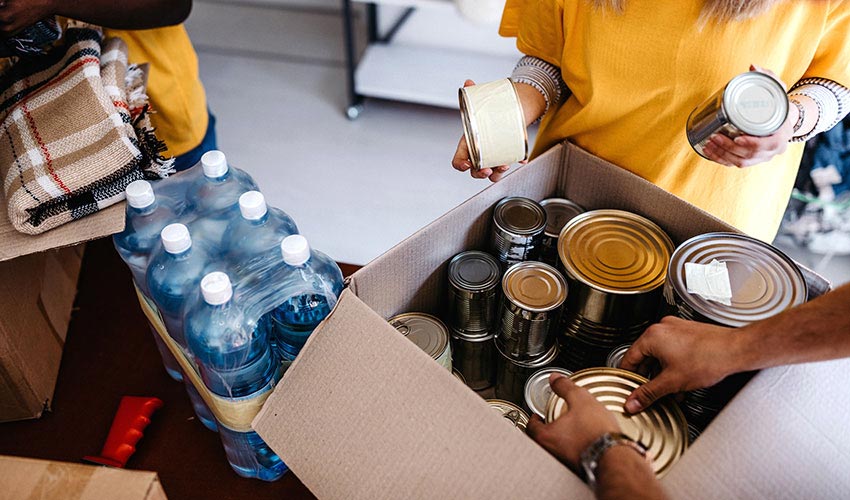3 steps to prepare your home and family for a natural disaster during COVID-19

Natural disasters pose a risk to homeowners at any time, but preparing for hurricanes, flooding, wildfires, and earthquakes is likely to be especially challenging during the COVID-19 pandemic.
While many preparedness steps will be the same, some may require a different approach while COVID-19 remains a concern. Here are three things to consider as part of your natural catastrophe preparedness planning:
-
Safely use contractors
Disaster preparation and recovery often requires you to use contractors, such as an arborist to prune trees near your home or an electrician to install a generator. Ask contractors about their COVID-19 related health and safety practices. If you’re not comfortable with their precautions, consider alternatives.
When contractors visit your property, be careful to follow best practices for protecting your family from the risk of infection; such as those laid out by Health Canada’s prevention guidance. You should also inform your contractor if you or anyone in your household has COVID-19 symptoms or has tested positive for the illness.
If possible, arrange to pay your bill online or via mail to avoid close contact.
For more contractor safety tips, see Dealing with Contractors During Covid-19.
Consider that disruptions to supply chains caused by the virus may make it more difficult to get the equipment and supplies you need to protect your home and family. Purchase or order the items you’ll need as soon as possible. -
Update your emergency kit
Every household should have a portable emergency kit ready to go at a moment’s notice. In normal times, your kit would include essential items such as a flashlight, non-perishable food, and bottled water. During the COVID-19 pandemic, update your emergency kit to include personal protective equipment (PPE), such as face masks and hand sanitizer. For a detailed checklist of emergency supplies, including items to help prevent the spread of COVID-19, visit Global News.

-
Update your evacuation and sheltering plans and practices
Disaster planning for your area may have changed due to the pandemic. Check with local officials to determine shelter locations in case you must evacuate. Because of social distancing, some shelters may have reduced occupancy, so you may have to travel further to reach a shelter that is both safe from a natural disaster and can accommodate social distancing between evacuees. If you evacuate to a public shelter, follow Health Canada guidelines for protecting yourself and your family from COVID-19.
If you’re considering sheltering at a hotel, confirm that the hotel is taking steps to help prevent the spread of COVID-19. Ask if they require guests and employees to practice social distancing and wear face masks in public areas. Is the hotel taking extra steps to clean and disinfect rooms and public areas?
It’s also a good idea to determine the location of hospitals and urgent care facilities near shelters and evacuation routes.
For more tips on keeping your home and family safe, see: Preparing for Hurricane Season During Covid-19
This document is advisory in nature and is offered as a resource to be used together with your professional insurance advisors in maintaining a loss prevention program. It is an overview only, and is not intended as a substitute for consultation with your insurance broker, or for legal, engineering or other professional advice.
Chubb is the marketing name used to refer to subsidiaries of Chubb Limited providing insurance and related services. For a list of these subsidiaries, please visit our website at www.chubb.com. Insurance provided by Chubb Insurance Company of Canada or Chubb Life Insurance Company of Canada (collectively, “Chubb Canada”). All products may not be available in all provinces or territories. This communication contains product summaries only. Coverage is subject to the language of the policies as actually issued.

Have questions?
Contact a broker today.